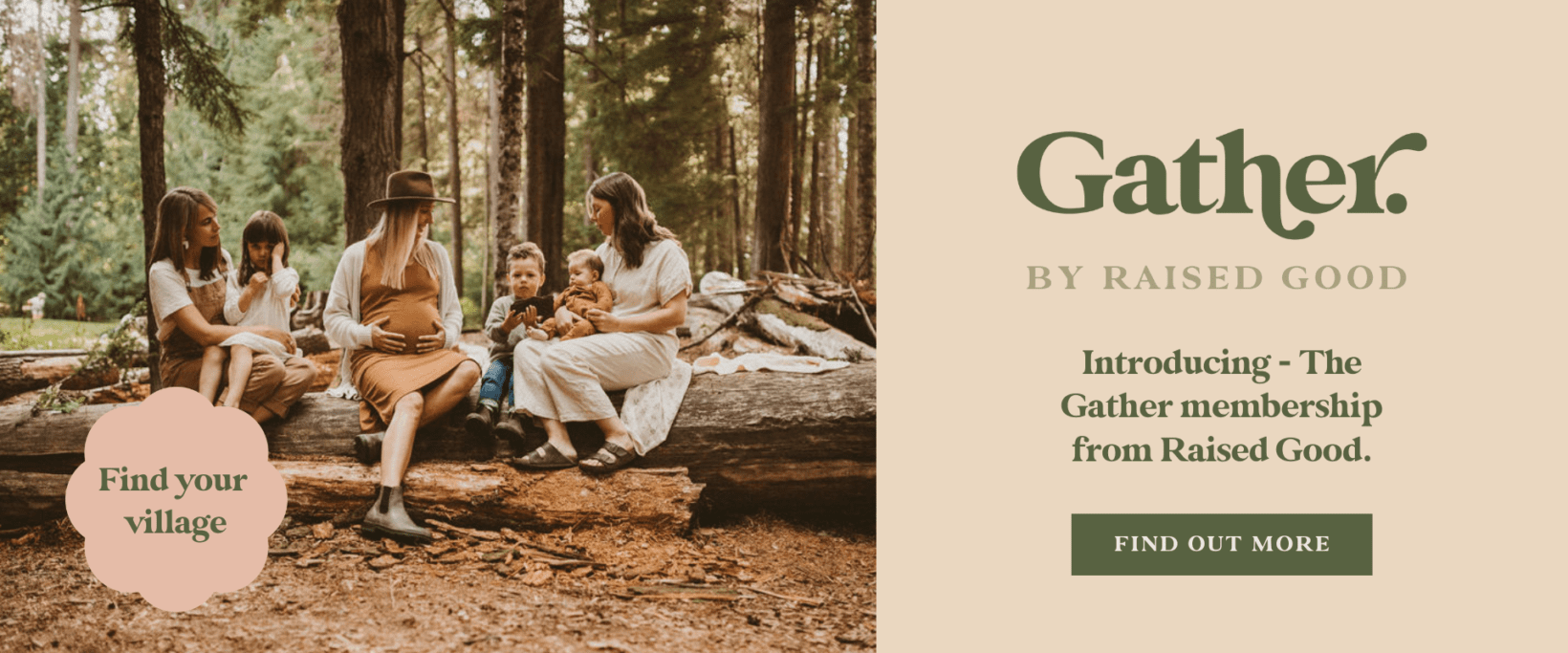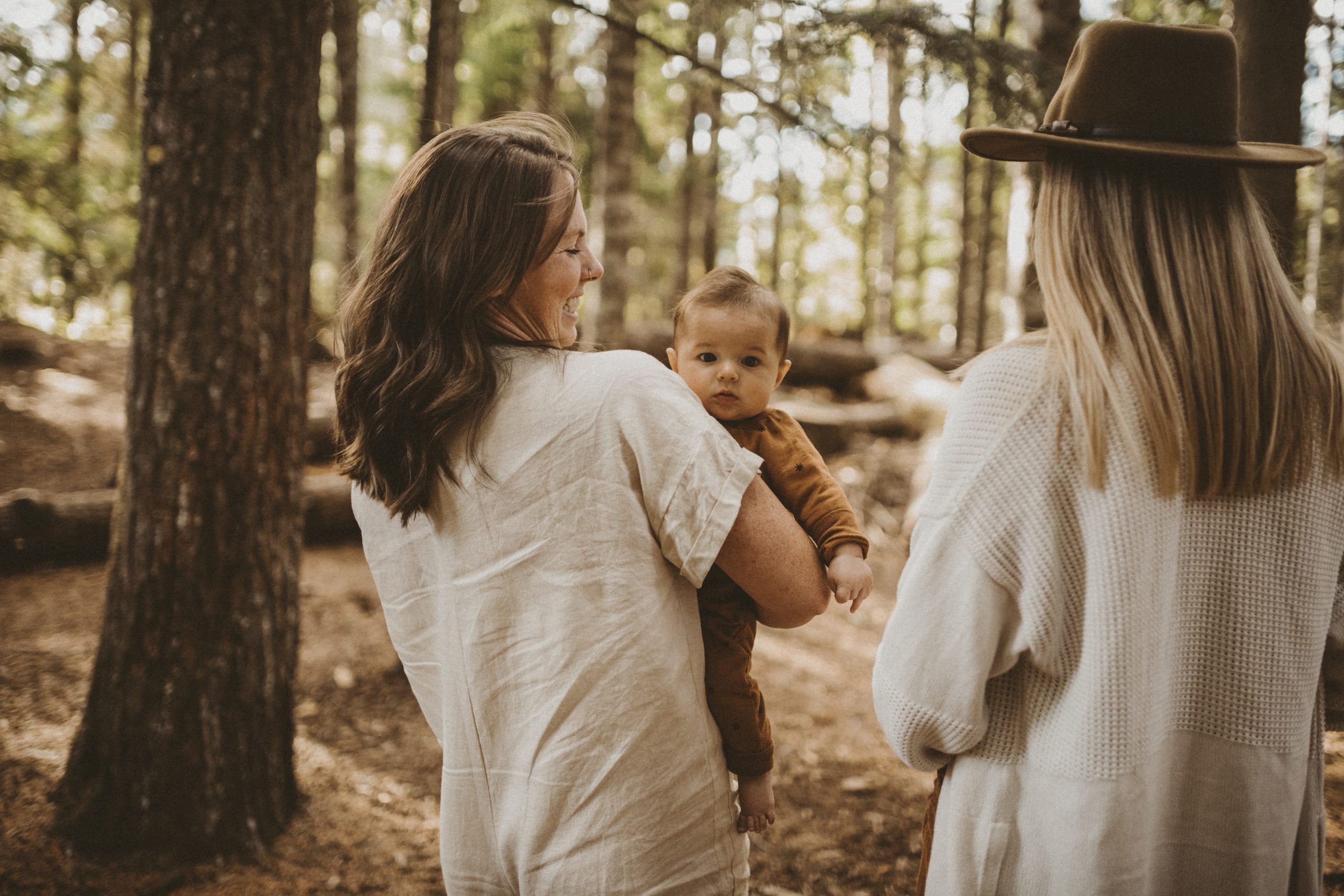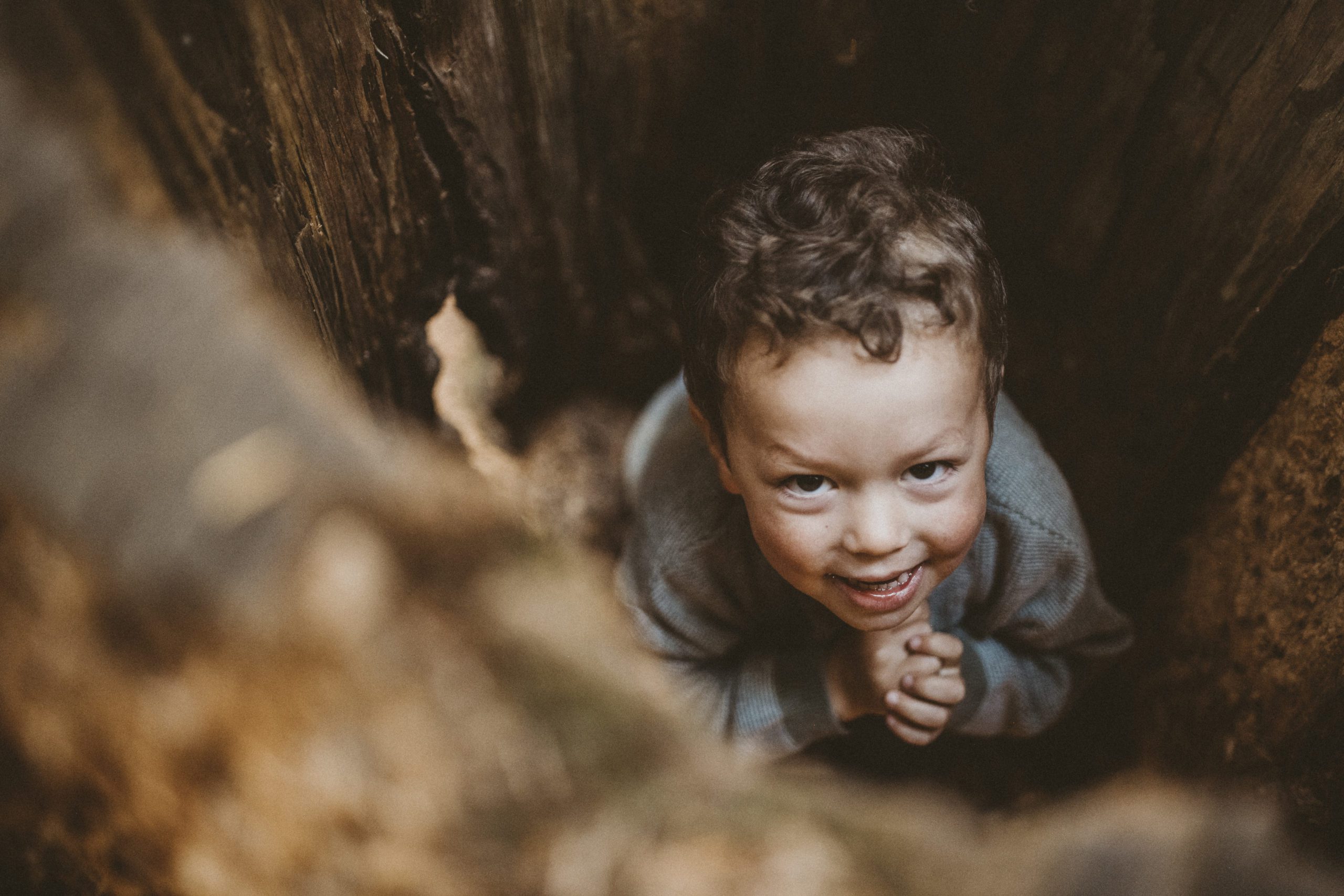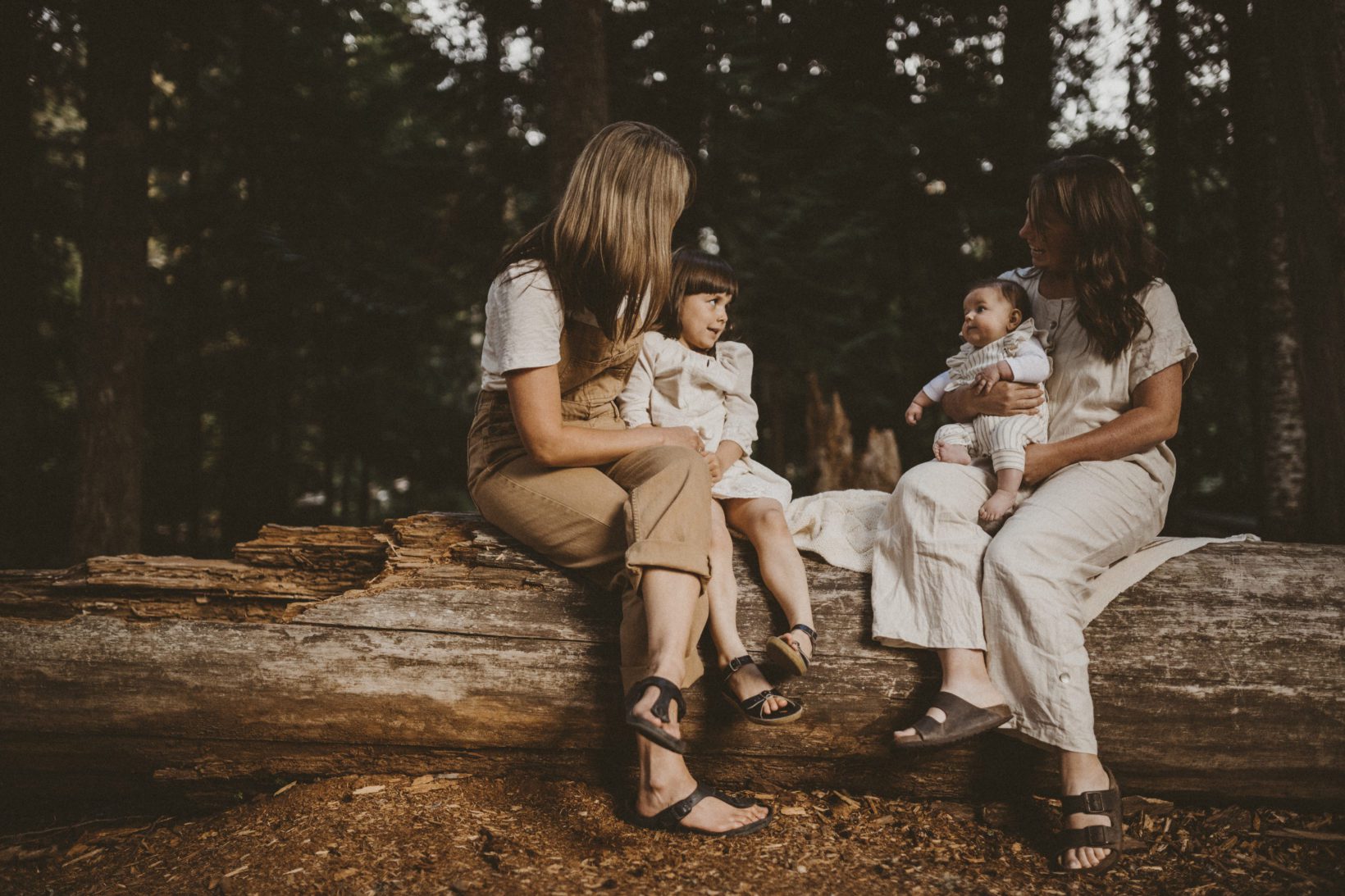There are 3 am moments in the darkness dancing with your baby.
You have never felt lonelier.
There are moments when your child throws themselves onto the floor of the grocery store full of emotion and you sit down with them as the world stares.
You feel like an anomaly.
There are instances surrounded by other mothers discussing how they left their babies to cry to sleep.
You wonder where in the world you fit anymore.
We have lost our village
The world has never been smaller, and it has never been easier to connect with people online, in an instant or a moment.
We send messages to family and friends far away as quickly as we can blink.
Yet mothers today have never felt so distant from one another. We live in an age and society where the village that was once a staple in our communities has all but disintegrated.
We are a generation of parents who have the world at our fingertips, and the freedom to choose and change when the tide calls us.
But, we are also a generation of parents adrift from the support we so vitally need to raise our children. For anyone with kids, it doesn’t take long to understand why they say it takes a village to raise a child.
Yet we look around at our empty streets, our locked doors, our lonely nights, and wonder where that village has gone.
We live in a time where individualism is prized over collectivism, in a society that puts profits before people. We are individually drowning in to-do lists, each too overwhelmed or overscheduled to help our neighbours or families with theirs.
The work of raising children has become ours to carry alone, as nuclear families now often live many miles or timezones from the support of the community that once shared the enormity of child-rearing. Grandparents are working longer and longer, robbing them of their freedom to support the raising of their grandchildren.
Parents find themselves trying to be ‘the village’ – but it is not a sustainable role for one or two people alone.

It takes a village to raise a child
We know that when a community of supportive adults provides care for our children it helps them build a strong social and emotional support system. While a strong attachment to the primary caregiver is what sets our children up to flourish, the more accustomed our children become to healthy connections around them, the more self-confidence and trust they have in the world. They naturally grow up more empathetic and resilient, reducing many other risk factors, such as depression & anxiety, etc.
When we look back through human history we see that children have always been raised cooperatively, and in some cultures they still are, but this is no longer the norm in the west.
Darcia Narvaez PhD, Professor of Psychology at the University of Notre Dame and founder of the Evolved Nest outreach programme tells us “during the period of rapid brain development that is the first years of life, babies and young children need rapid attention to their needs for comfort, affection and play. It’s too much for one person, so our species evolved a village of care“
Children didn’t have just their main caregivers taking care of their every need, they used to have many alloparents, all of whom had a pivotal role in the care and upbringing of the children in the community. We have come so far away from this in the west. Dr Narvaez advocates for the return to allomothering as one of her nine components to “re-nest” our children and restore the kinship we so vitally need for ourselves and our children.
In times gone by, extended families were integral to the raising of children; the holding, minding, and even feeding of babies as well as the care and support of the new parents. Until relatively recent times, we lived close to parents, grandparents, and siblings who were the support we needed to raise our children.
This has drastically changed in recent years and so many families are raising their children alone with only one or two parents, and very little other support. We don’t even need to discuss the plight of those new parents who were isolated through a worldwide pandemic to understand how incredibly hard it is to raise small children alone.

This is not the way we evolved to be parents
Our brains and biology are no different from our ancestors who roamed the plains years ago. Women of the tribe were then the community that raised everyone’s children. Our society has changed at lightning speed, and our values and expectations have socially out-evolved our biology.
Historically we learned how to mother through the guidance of our village. We were guided and held generation by generation by those who had come before us.
Wisdom was passed from grandmother to mother to daughter. We grew up in societies where we witnessed babies and children being cared for from a young age; this watching and witnessing became our imprint when the time came for us to bear our own children.
Nowadays it is rare to have any experience of a baby until we have one ourselves.
Women were naturally cared for in the postpartum period by a nurturing network of mother figures around them, until a time they fully recovered. If we were sick or needed to rest there were people on hand to care for our children.
Nowadays mothers more often than not have to carry on and pick themselves up. Bounce back. Lose the baby weight. Get back to “normal”. Mothers now so often feel they are failing their children and themselves by not being able to juggle it all and do it all.
We were never meant to do this alone
It seems almost intuitive that a pinnacle study from the 1980s by researchers at the University of Washington concluded what we are all now experiencing: “Mothers without strong support from a community had higher levels of stress, and mothers with higher levels of stress were more worn down and pessimistic about parenting.” On the flip side, they found that “mothers with strong support from their communities had lower levels of stress and were more content about parenting.” So why have we come so far from what we need?
Societal structure has changed enormously even from our own parents’ generation. It used to be enough that one parent could work to support the family yet now in the west it seems we have no choice but for both parents to be earning money just to get by.
“We need to get back to a communal ethic… Women now have to play an equivalent economic role in society, but no one has stepped up to share the emotional responsibility in motherhood.
Since the Second World War, this is the hardest time to be a mother. With the increasing neo-liberalisation of the economy and rising inequality, people have increased pressures that make it very difficult to be a parent.”
GABOR MATÉ
The age of retirement has increased meaning our parents are at their 9-5 rather than around to help us raise our children. Social media has pushed us online and out of touch with our communities on the ground.
We live in one of the safest times in history to raise kids as Lenore Skenazy, author of Free Range Kids says “It’s a healthy and lovely time for children to be alive and for parents to revel in that, and instead we’re more afraid than ever”. Yet, with the rise of 24-hour access to news and information, we’ve become more suspicious, and more afraid to let our children play freely in our neighbourhoods. It only takes walking around a suburban street to witness the disappearance of children playing together outside.
“The problem with a society devoted to zero risk is that kids grow up overprotected and under-socialised. They miss out on the thrilling experience of fending for themselves, crucial in forging confidence. They miss out on learning to assess risk and dealing with minimal danger without constantly deferring to an authority.”
Lenore Skenazy

We’re letting our differences divide us
Not only do we find ourselves adrift geographically we’re also becoming more adrift from one another as parents. With the rise of the internet we live in an information age, which can be a blessing and a curse; the sheer amount of information and the level of contradiction can create and amplify a divide between parents.
For those parents who have chosen a more natural and nurturing path in a bid to return to how we’re evolutionarily designed to parent, the mass of information on behavioural-based sleep training and traditional punishment techniques can leave you feeling lost, ungrounded, and unsure of your place in the world.
It can feel confronting when friends who were in your community before having children choose to parent with the grain as you choose to go against it. You can find yourself isolated in your choices, unsure where to turn to share the ups and downs of parenthood.
It is common for mothers who breastfeed through the night, co-sleep, and choose more nurturing practices to be at the end of constant questions as to when they might cease these practices or field suggestions that they are creating ‘a rod for their own back’.
Visits to the community support we do have such as, Maternal Child Health Nurses or GPs can turn into a discussion on how your baby is sleeping as the barometer of how you and they are thriving in this new parent/child relationship. It is now common practice for paediatricians to push sleep training and independent sleeping before many mothers and fathers are ready, and definitely, before our infants are biologically ready. This can lead you to isolate yourself more, to hide what you’re doing as a family, and to stop asking for help when the only answer you get is to sleep train your child.
Ironically, we no longer value individual choice in this individualised society unless that choice is the same as everyone else’s, supports the system, and gives more power to institutions. We no longer seem to be able to support other parents unless they choose to parent exactly like us. Social media and news algorithms are creating a myopic, unrealistic, tunnel-vision view of our world. We’re fed what the algorithm believes we want to see to keep us scrolling, to keep us clicking. Cancel culture fuels the fear of disagreement and we’re in danger of losing the ability for healthy debate, the sign of a functioning society.

Where has this led us?
Parenting without our village has led us to constantly try to fix the child so the parent can continue to do it all, alone. Sleep training and traditional discipline techniques are inadequate (and inappropriate) answers to the lack of support. We have increasing rates of postpartum mental health issues driven by the lack of rest, the lack of choice, and the lack of support.
We seek our information from so-called online “experts” as we lack guidance from a multigenerational support network, which used to show us how to trust our intuition. We are drowning in guilt, fear and anxiety about our abilities as parents, as few of us have had the opportunity to spend any time with young infants until we become parents ourselves.
We are becoming more isolated than ever, we look outside of ourselves, and we try to fix our children more than ever before. We have transitioned so quickly to this modern state of parenthood that we are still reeling from finding ourselves here alone and unable to find our way back to the village we long for.
What is the answer?
How do we create a village when there is no longer a village?
How do we find a community, a place where we can share openly and honestly about the highs and the lows of parenthood, a place free from judgement?
How can we mind our well-being while also raising children without our village?
How can we stop blaming ourselves and overcome the struggles of modern parenthood, caused by a societal structure that no longer allows the village to exist?
There is no denying that there needs to be a massive cultural shift in how motherhood and parenthood are valued in our society, and this shift feels as though it is on its way, but in the meantime what do we do and how do we become part of this shift?
1. Remember, you didn’t create this
Remind yourself that you have not created this situation, it is no fault of your own that you are caring for your children without support. This is a much wider societal and generational issue. You are doing the absolute best you can with what you have.
2. Care for yourself
We cannot show up as the parent our children need, nor can we shift this paradigm of parents carrying it all if we martyr ourselves. We absolutely must take the time and moments to do things that fill us up. This can be as simple as going for a walk in the forest with your child. Having a cup of tea alone in the garden before your baby awakes. Taking care of ourselves doesn’t have to be grand gestures but to change the narrative we must start by making small changes ourselves. What small things can you do for yourself today?
3. Ask for help
We are all as busy as one another, yet we all in our hearts want to help and support others. With the constant posting of the highlights reel of our lives to social media, people can be mistaken in thinking that we are doing just fine. We need to start asking for the support we need, from partners, friends, from our community. We must open ourselves to others, inviting them in to help where we need and be unafraid to ask for support. Most people would love to help, most people just do not know how. Here’s a blog post I wrote about that very topic: Here’s How to Help a New Mother (Especially When She Doesn’t Ask)
4. Get involved in your community
Cultivate connections in your local community, join a book club, or a homeschooling community, and find a community that shares your values. Find a place you can take your children along to. If this doesn’t exist in your community is there some way you can be the first to begin?
5. Simplify your life
Start by cutting out all that isn’t important. Don’t overcommit, slow down in this parenting season. Where can you shift priorities to take on less? Can you make simple dinners, and order takeout once a week? Do your children need to do activities every day of the week, can you carve out time just at home doing less? I’ve written many blog posts about this topic as I believe simplicity is the secret sauce you need to be a conscious parent. Start with this post and then this one.
Community is coming
Change is on its way.
As women, mothers, and parents, we were never meant to do this alone.
We were meant to be supporting each other, laughing with one another, crying with each other, and holding one another up, the way it has been done for millennia.
We’re supposed to be supported and nurtured during and after pregnancy.
When we become mothers we’re meant to be held by those who have gone before us.
We need to start asking for the support we deserve and may need get creative about how we find our village in the absence of the familial village we once knew. It might now look like paying for help; a doula, a babysitter, a cleaner, or sharing childcare and playdates with a trusted friend. We can create it ourselves if we think outside of the box.
You will find your people, you will find yourself in motherhood once the intensity of babyhood transitions into childhood. There are places to find a like-minded community that will hear and support you through the choices you make as a parent.
In early 2023, the Raised Good membership community Gather was created for just that purpose. It’s a place for you to feel seen and heard – a resting place for natural parents to find their tribe, their village, and their friends. Click here to learn more about how you can join this supportive community.


Comments